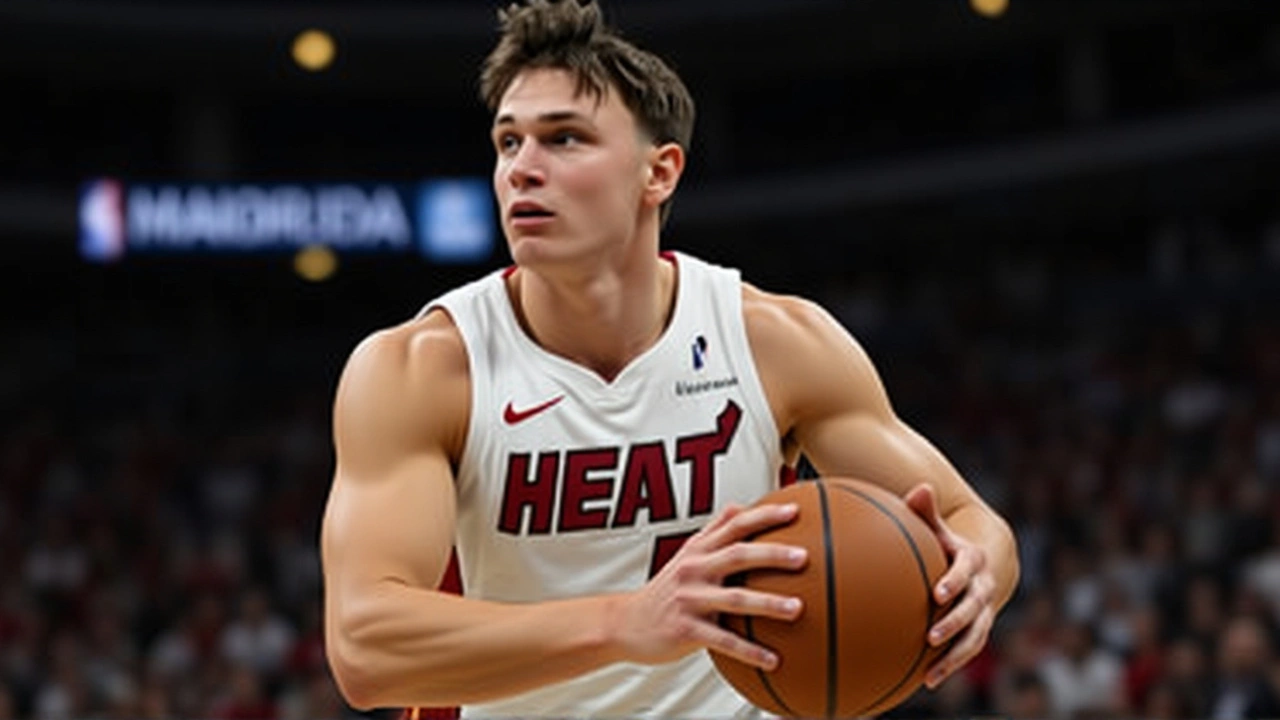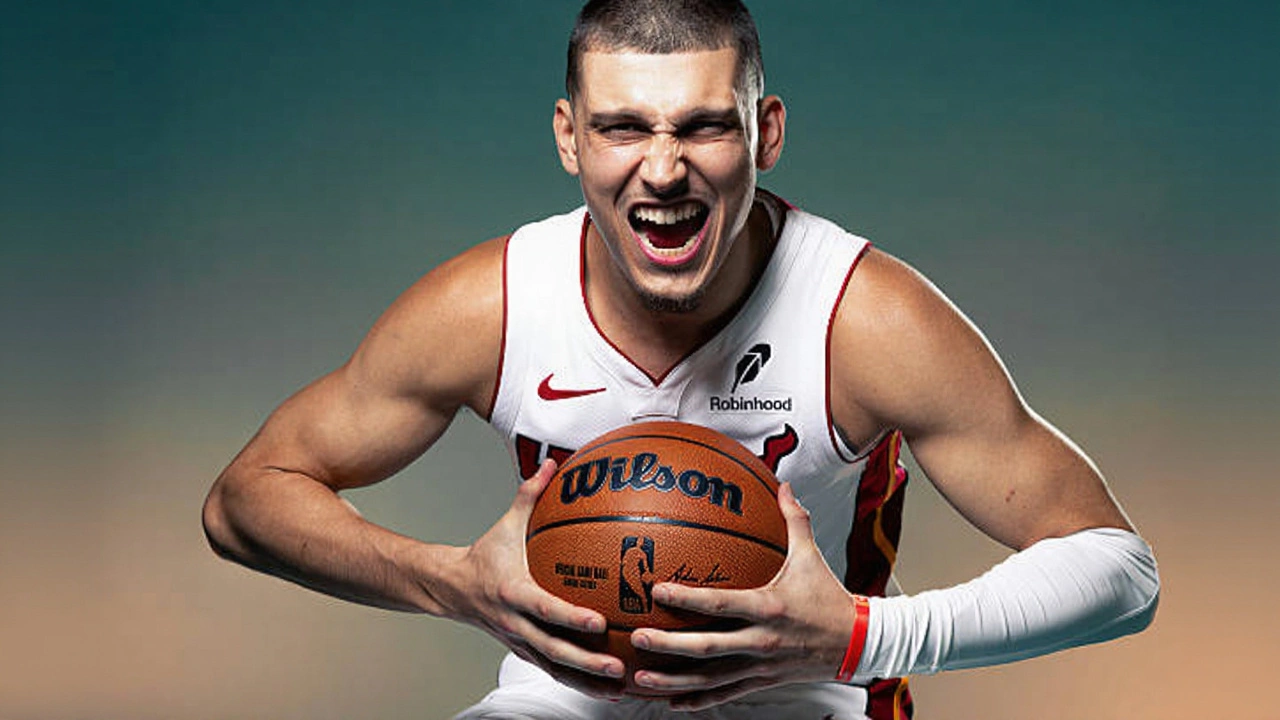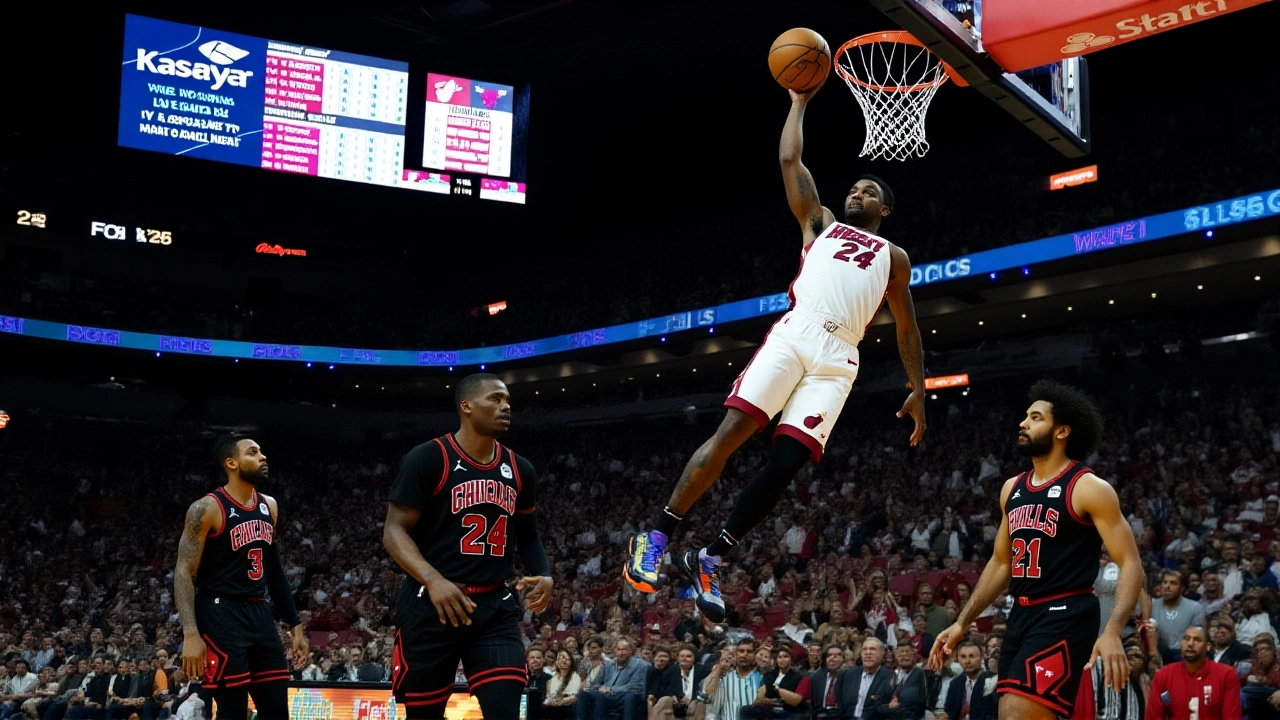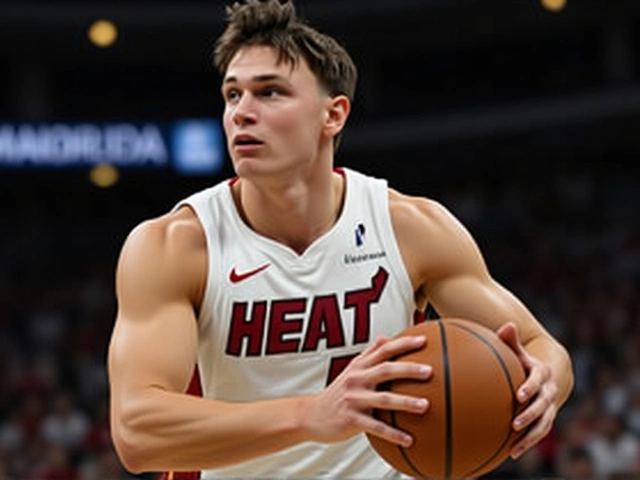
Heat crush Bulls 143-107 behind Kel'el Ware's 20-point, 14-rebound game
The Miami Heat didn’t just beat the Chicago Bulls — they dismantled them. On Friday, November 21, 2025, at the United Center in Chicago, the Heat rolled to a 143-107 rout in an Emirates NBA Cup Chicago matchup, turning what started as a tight opener into a full-blown offensive showcase. The win pushed Miami to 10-6 on the season and extended their winning streak to three games, while Chicago dropped to 8-7, reeling from their worst defeat of the year.
A 53-21 Run That Broke the Bulls
It didn’t look like this would be a blowout early. The Bulls opened with an 18-11 lead, fueled by Ayo Dosunmu’s quick scoring and Josh Giddey’s playmaking. But then — everything changed. Miami went on a 53-21 run over the next 15 minutes, turning a six-point deficit into a 25-point lead by halftime. The Heat’s offense didn’t just click; it exploded. They shot 61% from the field in the first half, hit nine three-pointers, and moved the ball with surgical precision. By the end of the third quarter, the lead was already 28. The Bulls? They looked lost. No answers. No rhythm. Just frustration.
Kel’el Ware Takes Center Stage
At the heart of it all was Kel’el Ware, the 21-year-old Miami center whose name is suddenly on everyone’s lips. Ware didn’t just play — he dominated. His 20 points and 14 rebounds were the most by a Heat rookie since Bam Adebayo’s breakout season, and his 2 steals showed he wasn’t just a post presence. He moved like a guard, blocked shots with timing, and finished alley-oops with authority. When he dunked over two defenders in the third quarter, the United Center fell silent. Even the Bulls’ bench looked stunned.
Norman Powell added 19 points off the bench, and Bam Adebayo chipped in 18 with 7 rebounds, keeping the pressure on Chicago’s interior. Pelle Larsson and Davion Mitchell each scored 16, making Miami’s scoring so balanced it felt unfair. Meanwhile, Chicago’s Ayo Dosunmu led his team with 23 points and 4 assists, and Giddey nearly notched a triple-double with 19 points, 11 rebounds, and 9 assists — but it was all too little, too late.
A Night of Ejections and Records
The game wasn’t just about scoring — it was about emotion. Midway through the third quarter, Chicago’s Kevin Huerter, visibly agitated after a foul call went against him, waved his hand toward the ball as it rolled near referee Che Flores. The ball bounced off Flores’ leg. Huerter was immediately ejected. It was the kind of moment that speaks volumes — a team unraveling under pressure, a player snapping under the weight of a crushing deficit.
And the numbers? They’re historic. This was the fourth time this season the Heat have scored over 140 points — matching their total from the entire seven-year span between 2018 and 2025. Their average of 124.8 points per game now leads the NBA by over three points. They’ve become the league’s most explosive offense, and Friday’s game wasn’t an anomaly — it was a statement.

The Cup Standings Shift
In the Emirates NBA Cup Chicago group play, Miami improved to 2-1 in Cup games, sitting just half a game behind the Milwaukee Bucks (2-0) in East Group C. The Bulls, meanwhile, dropped to 1-2 — now in fourth place, behind the Knicks and ahead of the Hornets. With the group stage concluding in early December, every game matters. This loss could haunt Chicago’s chances of advancing.
A Rivalry Rekindled — Sort Of
It’s easy to forget that these two teams used to be fierce rivals. The Heat and Bulls clashed in three straight Eastern Conference Finals from 1997 to 1999. Michael Jordan vs. Shaq. Pippen vs. Dwyane Wade. Those games were physical, emotional, and legendary. Friday’s game wasn’t like that. It was a clinic. A reminder that Miami’s roster has evolved into something entirely different — faster, deeper, and more dangerous. The Bulls? They’re still rebuilding. And right now, they’re not even close.

What’s Next?
Miami’s next game is against the Charlotte Hornets on December 3, still in Cup play. They’ll be looking to clinch the group lead. Chicago, meanwhile, faces the New York Knicks on December 2 — a must-win just to stay alive in the Cup. But beyond the tournament, the real question is this: Can the Bulls find a rhythm before the All-Star break? Or will this 41-point loss become the low point they’re forced to climb out of?
Frequently Asked Questions
How does Kel’el Ware’s performance compare to other rookies this season?
Ware’s 20-point, 14-rebound game is the best by any NBA rookie this season, surpassing the previous high of 18 points and 12 rebounds by Denver’s Zaccharie Risacher. He’s the only rookie in the top 15 in rebounding and top 20 in field goal percentage (64.8%). His efficiency and athleticism make him a rare two-way threat, and scouts are already comparing him to a young Dwight Howard.
Why is Miami scoring so much more this season?
The Heat have shifted to a pace-and-space system under coach Erik Spoelstra, with five players capable of shooting from deep. They’ve increased their three-point attempts by 12% from last season and are now averaging 14.7 made threes per game — first in the league. Ware’s rim-running creates space, and Powell, Larsson, and Mitchell all thrive in transition. It’s not luck — it’s a system.
What does this loss mean for the Bulls’ playoff chances?
Chicago is now 8-7, sitting just outside the Eastern Conference play-in picture. But with their defense ranking 25th in the league and their bench outscored by 7.2 points per 100 possessions, they’re vulnerable. Losing by 36 points to a team they’re supposed to compete with raises red flags. If they don’t fix their defensive rotations and rebounding, they could miss the playoffs for the fourth straight year.
How significant is the Emirates NBA Cup to NBA teams?
While it’s not as prestigious as the playoffs, the Cup gives teams a chance to earn extra revenue, test lineups, and gain seeding advantages. The top team in each group gets a home game in the single-elimination bracket in December. For Miami, winning the group means avoiding a tough road game. For Chicago, falling behind means their Cup dreams are fading — and they’re losing valuable practice time against elite competition.
Was Kevin Huerter’s ejection justified?
Yes. NBA rules classify waving at the ball after a foul call as unsportsmanlike conduct, especially if it makes contact with an official. Huerter’s gesture wasn’t malicious, but it was disrespectful to the game. Referees have been instructed to crack down on such actions this season. His ejection was the right call — and it may have been the tipping point for Chicago’s collapse.
What’s the history of the United Center as a venue for big NBA games?
Opened in 1994, the United Center has hosted 11 NBA Finals games, including six with the Bulls during their championship runs. It’s known for its deafening crowd noise and historic moments — like Michael Jordan’s final game in Chicago in 2003. Friday’s 143-point loss was the largest margin of defeat in the arena since 2018, when the Warriors beat the Bulls by 43 points. It’s a building built for glory — and Friday, it witnessed a franchise in crisis.

Cassidy Thornton
My name's Cassidy Thornton and I'm a sports editor for a major Australian newspaper, specifically covering anything and everything related to running. It's my passion and my job to tap into the circuit of marathons, fun runs, and professional competitions. When I'm not pounding the pavement, I'm writing about it. Nothing gives me more joy than sharing my insights and experiences through the written word with other running and sports enthusiasts.
About
Welcome to Catherina's Running Hub, your one-stop destination for everything running-related! Our website offers expert advice, training tips, and motivational content to help you achieve your running goals. Join our supportive community and let's hit the ground running together!

